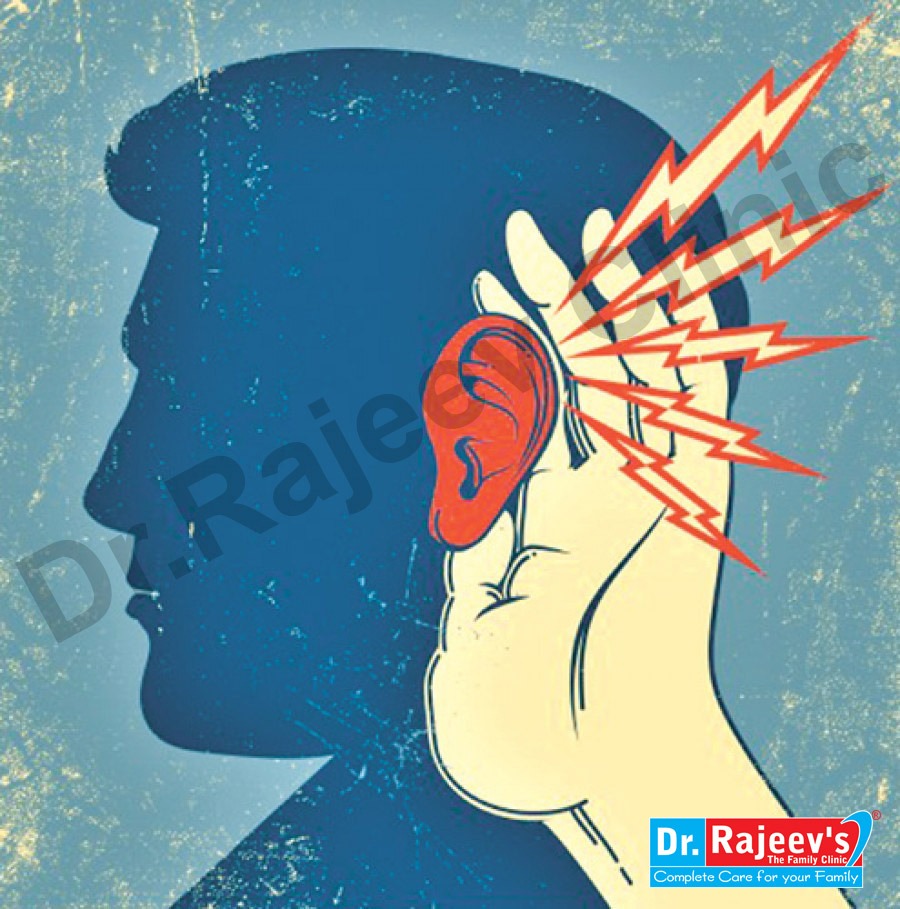

Hearing impairment, deafness, or hearing loss refers to the total or partial inability to hear sounds.
Symptoms may be mild, moderate, severe, or profound. A patient with a mild hearing impairment may have problems understanding speech, especially if there is a lot of noise around, while those with moderate deafness may need a hearing aid.

Some diseases or circumstances that can cause deafness include:
The inner ear is home to some of the most delicate bones in the body, and damage to the eardrum or middle ear can cause hearing loss and deafness in a range of ways.
It is important to distinguish between the different levels of hearing loss.
Hearing loss: This is a reduced ability to hear sounds in the same way as other people.
Deafness: This occurs when a person cannot understand speech through hearing, even when sound is amplified.
Profound deafness: This refers to a total lack of hearing. An individual with profound deafness is unable to detect sound at all.
The severity of hearing impairment is categorized by how much louder volumes need to be set at before they can detect a sound.
Some people define profoundly deaf and totally deaf in the same way, while others say that a diagnosis of profound deafness is the end of the hearing spectrum.
There are three different types of hearing loss:
This means that the vibrations are not passing through from the outer ear to the inner ear, specifically the cochlea. This type can occur for many reasons, including:
Ear infections can leave scar tissue, which might reduce eardrum function. The ossicles may become impaired as a result of infection, trauma, or fusing together in a condition known as ankylosis.
Hearing loss is caused by dysfunction of the inner ear, the cochlea, auditory nerve, or brain damage.
This kind of hearing loss is normally due to damaged hair cells in the cochlea. As humans grow older, hair cells lose some of their function, and hearing deteriorates.
This is a combination of conductive and sensorineural hearing loss. Long-term ear infections can damage both the eardrum and the ossicles. Sometimes, surgical intervention may restore hearing, but it is not always effective.
Hearing loss can affect speech ability depending on when it occurs.
This is an inability to fully or partially hear before learning how to utter or understand speech.
An individual with prelingual deafness was born with a congenital deformity or will have lost hearing during infancy.
In the majority of cases, people with prelingual deafness have hearing parents and siblings. Many are also born into families who did not already know sign language. They consequently also tend to have slow language development. The few who were born into signing families tend not to face delays in language development.
If children with prelingual deafness are given cochlear implants before the age of 4 years, they can acquire oral language successfully.
Oral language and the ability to use social cues are very closely interrelated. That is why children with hearing loss, especially those with severe symptoms, may not only experience delayed language development, but also slower social development.
Most people with hearing loss have post-lingual deafness. They acquired spoken language before their hearing was diminished. A medication side effect, trauma, infection, or disease may have caused losing their sense of hearing.
In most people with post-lingual deafness, hearing loss onsets gradually.
Household members, friends, and teachers may have noticed a problem before they acknowledged the disability. Depending on the severity of hearing loss, the individual may have had to use hearing aids, receive a cochlear implant, or learn how to lip-read.
People who experience hearing loss face different challenges, depending on when it occurs and how long it takes to develop. They might have to become familiar with new equipment, undergo surgery, learn sign language and lip reading, and use various communication devices.
Single-sided deafness (SDD), or unilateral deafness, refers to hearing impairment in just one ear, while bilateral deafness is hearing impairment in both.
People with a unilateral hearing impairment may find it hard to carry on a conversation if the other person is on their affected side. Pinpointing the source of a sound may be more difficult, when compared with those who can hear well in both ears. Understanding what others are saying when there is a lot of environmental noise might be hard.
The symptoms of hearing impairment depend on its cause. Some people are born without being able to hear, while others suddenly become deaf due to an accident or illness. For most people, symptoms of deafness progress gradually over time.
Some conditions may have hearing loss as a symptom, such as tinnitus or stroke.
The following signs may indicate a hearing problem:
These signs might become more evident in slightly older children:
There are four levels of deafness or hearing impairment. These are: